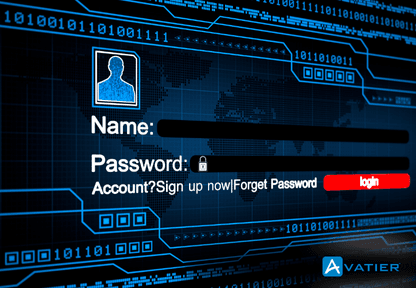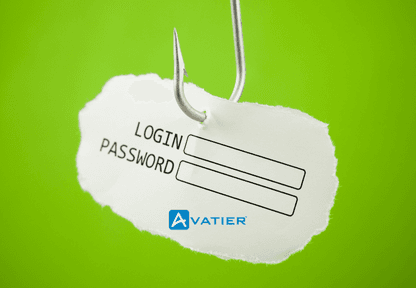August 17, 2025 • Mary Marshall
Beyond Security: How Access Control Systems Are Revolutionizing Business Operations
Discover how modern access control systems go beyond security to transform business operations, and drive competitive advantage.
Access control systems have transcended their traditional role as security gatekeepers. While protecting sensitive information remains crucial, forward-thinking organizations are leveraging these systems to revolutionize their business operations, streamline workflows, and create measurable competitive advantages.
The Evolution from Security Tool to Business Enabler
Modern access control has evolved dramatically from the simple password-protected systems of the past. What once served merely as a security barrier has transformed into a sophisticated business enabler that impacts virtually every aspect of enterprise operations.
According to a recent study by Forrester, organizations that implement advanced identity and access management solutions report a 45% increase in operational efficiency and a 60% reduction in security incidents. These statistics underscore how access control now serves a dual purpose: enhancing security while simultaneously optimizing business processes.
Access control systems are no longer just about keeping unauthorized users out—they’re about creating frictionless experiences that empower authorized users to work more efficiently. This shift represents a fundamental change in how organizations view these systems: not as necessary security overhead, but as strategic investments that drive business value.
Streamlining Operations Through Automated Access Management
One of the most significant operational impacts of modern access control systems comes through automation. Manual provisioning processes—adding, modifying, or removing user access—traditionally required substantial IT resources and created bottlenecks that frustrated both employees and management.
Avatier’s Identity Anywhere Lifecycle Management solution addresses this challenge by automating the entire identity lifecycle, from onboarding to offboarding. This automation doesn’t just improve security; it dramatically reduces operational overhead and accelerates business processes.
Consider these operational benefits:
- Accelerated onboarding: New employees gain immediate access to required systems, allowing them to become productive on day one rather than waiting days or weeks for proper access.
- Dynamic access adjustments: As employees change roles, access rights automatically adjust to match their new responsibilities, eliminating both security risks and productivity barriers.
- Streamlined offboarding: When employees depart, all access is immediately revoked, closing security gaps while simultaneously freeing up licenses and resources.
Organizations implementing automated access management solutions report reducing onboarding time by up to 80% and cutting IT service desk tickets by 70%, according to data from Okta’s Businesses at Work 2023 report. These efficiencies translate directly to cost savings and operational agility.
Enhancing Productivity Through Self-Service Capabilities
Perhaps one of the most transformative operational impacts of modern access control systems comes through self-service functionality. Traditional access management required employees to submit tickets and wait for IT to process requests—creating friction, delays, and frustration.
Avatier’s Group Self-Service capabilities empower employees to request access, reset passwords, and manage their identity profiles without IT intervention. This self-service approach delivers multiple operational benefits:
- Reduced downtime: Employees can resolve access issues in minutes rather than hours or days, minimizing productivity losses.
- IT resource optimization: Support teams can focus on strategic initiatives rather than routine access requests.
- Improved user satisfaction: Employees gain a sense of control and autonomy over their digital work environment.
The operational impact is substantial: research from SailPoint indicates that organizations implementing self-service identity management reduce help desk calls by up to 75% and cut password reset costs by 70%. For large enterprises, this can represent millions in annual savings while simultaneously improving workforce productivity.
Breaking Down Departmental Silos with Unified Access Control
Traditional organizations often struggle with siloed systems, where each department manages access to its own applications and resources independently. This fragmented approach creates operational inefficiencies, compliance challenges, and security vulnerabilities.
Modern access control systems break down these silos by providing a unified approach to managing access across the entire organization. Avatier’s Access Governance solution creates a centralized framework for managing access across all systems, applications, and resources—regardless of whether they’re on-premises or in the cloud.
This unified approach delivers multiple operational benefits:
- Simplified compliance: A single source of truth for all access rights makes audit preparation and regulatory compliance significantly easier.
- Improved collaboration: Cross-functional teams can more easily share resources and information when access control systems facilitate rather than hinder collaboration.
- Enhanced visibility: Leaders gain comprehensive insight into who has access to what resources, enabling better decision-making and risk management.
Organizations that implement unified access governance report reducing compliance preparation time by 50% and improving cross-departmental collaboration efficiency by 35%, according to Ping Identity’s 2023 research on the business impact of identity management.
Driving Strategic Decision-Making with Access Intelligence
Beyond operational efficiencies, leading organizations are leveraging access control systems to generate valuable business intelligence. The data generated by these systems provides unprecedented visibility into organizational behavior, resource utilization, and potential risks.
Advanced access analytics enable leaders to:
- Identify underutilized resources: Discover which applications and systems are seeing limited use, potentially saving on unnecessary licensing costs.
- Optimize workflows: Understand how different teams access and utilize resources, identifying opportunities to streamline processes.
- Forecast future needs: Analyze access trends to predict future resource requirements and plan strategic investments.
According to research from Gartner, organizations that leverage identity analytics for business intelligence report a 40% improvement in resource allocation efficiency and a 25% reduction in redundant system costs. This transformation of access data into actionable intelligence represents a significant evolution in how organizations extract value from their access control investments.
Enabling Secure Remote and Hybrid Work Operations
The dramatic shift toward remote and hybrid work models has further amplified the operational impact of access control systems. Traditional perimeter-based security approaches proved inadequate for distributed workforces, creating both security vulnerabilities and operational challenges.
Modern access control systems have become the foundation for secure, productive remote work by:
- Enabling location-independent access: Employees can securely access resources from anywhere, maintaining productivity regardless of location.
- Enforcing contextual security policies: Access decisions incorporate factors like device health, location, and behavior patterns to balance security with usability.
- Facilitating collaboration: Secure sharing and controlled access to resources enable distributed teams to work together effectively.
A recent study from Microsoft found that organizations with advanced identity and access management solutions supporting their remote workforce reported 43% higher productivity and 37% lower security incidents compared to those with traditional access controls. This highlights how modern access systems have become essential operational infrastructure for today’s distributed work environments.
Accelerating Digital Transformation Initiatives
Access control systems have become critical enablers of broader digital transformation initiatives. As organizations adopt new technologies and business models, the ability to securely and efficiently manage access becomes a determining factor in transformation success.
Modern access control solutions facilitate digital transformation by:
- Supporting rapid technology adoption: New systems and applications can be quickly integrated into the existing access framework, accelerating deployment.
- Enabling secure partner and customer access: External users can be granted appropriate access to specific resources without compromising security.
- Facilitating cloud migration: Consistent access policies can be applied across hybrid environments during transition periods.
Research from McKinsey indicates that organizations with mature identity and access management capabilities are 24% more likely to successfully complete digital transformation initiatives and realize their expected benefits. This makes access control systems not just operational tools but strategic assets in the transformation journey.
Competitive Advantages Through Access Innovation
Forward-thinking organizations are discovering that innovative approaches to access control can create meaningful competitive advantages. Beyond the operational efficiencies already discussed, these advantages include:
- Enhanced customer experiences: Extending sophisticated access controls to customer-facing applications creates seamless, secure experiences that differentiate brands.
- Accelerated time-to-market: Streamlined access processes enable faster development, testing, and deployment of new products and services.
- Improved regulatory positioning: Advanced access governance capabilities help organizations confidently enter regulated markets that competitors might avoid.
Organizations that view access control as a strategic capability rather than just a security function report gaining significant market advantages. According to Deloitte’s 2023 Digital Trust survey, companies with mature identity capabilities are 35% more likely to be market leaders in their industry segment.
Implementing Access Control as a Business Strategy
To fully realize the operational benefits of modern access control systems, organizations must approach implementation as a business strategy rather than an IT project. This requires:
- Executive sponsorship: Leadership must understand and champion the business value of access transformation.
- Cross-functional collaboration: IT, security, HR, and business units must work together to align access strategies with business objectives.
- User-centric design: Access systems should be designed around user needs and workflows, not just security requirements.
- Continuous improvement: Access strategies should evolve with the organization, adapting to new business models and opportunities.
Organizations that take this strategic approach report significantly higher returns on their access control investments. According to Forbes Insights, businesses that implement identity and access management as a strategic initiative achieve 3.2 times higher ROI compared to those implementing it purely as a security measure.
Conclusion: Access Control as a Cornerstone of Modern Business
The evolution of access control from security mechanism to business enabler represents one of the most significant yet underappreciated shifts in enterprise technology. Forward-thinking organizations recognize that modern access control systems impact virtually every aspect of their operations—from employee productivity and customer experience to compliance efficiency and strategic agility.
As digital transformation accelerates and work models continue to evolve, the operational impact of access control will only grow in importance. Organizations that recognize and leverage this evolution will not only enhance their security posture but also gain significant operational advantages that translate into tangible business results.
The question for today’s leaders is no longer whether access control matters to business operations—it’s how quickly they can transform their access strategies to capture the full spectrum of benefits these systems now offer.









